
views
The Habits

Eat healthily. Well-nourished bodies are better equipped to handle anything, so, in looking out for your mind, look out for your body. Start your day off with a healthy breakfast and stay on track with small, nutritious meals throughout the day to keep energized. Many people stress eat -- that can be over or under-eating. If you know this is a problem for you, watch for it. It's probably just making the issue worse.
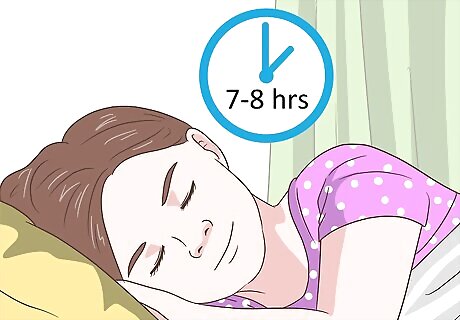
Get enough sleep. When you get 7-8 hours of sleep a night, you are ready to tackle the stress of any given day more easily. If you're tired, you'll likely be less patient and easily irritated -- which just exacerbates the stress cycle. Getting a good night's rest not only makes for a good day, but a good day makes for a good night. If sleeping is problematic, assess why. Noises? Lights? An insane schedule? What can you adjust to make sleeping easier?
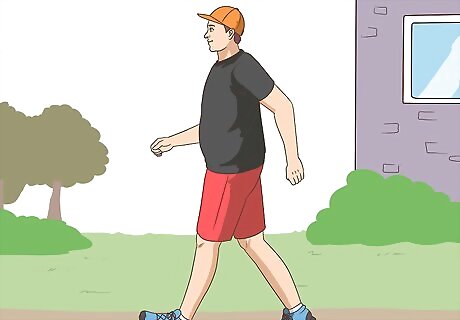
Exercise. Yoga to aerobics to walking around the block after dinner can help relieve stress -- you don't have to go pounding the pavement if you're out of shape. A little goes a long, long way toward stress management and your health. As if you didn't already know, exercise is good for the mind, body, and spirit. Not only does it increase your overall health and your sense of well-being, but it also gets your endorphins going. And that can seriously improve your mood. Oddly enough, it's similar to the calming effect of meditation.
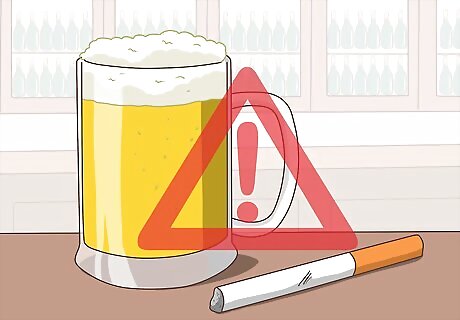
Monitor your addictive habits. It is naturally human to cope with stress outwardly in a number of ways. However, usually those ways aren't so conducive to the problem alleviating itself. If you're prone to this, keep an eye out. Ask others to keep an eye out for you, too. If you find yourself eating, smoking, or drinking (to name just a few), it may be in response to your stress. It can seem like it's helping with the problem, but when you think long-term, it's just making it worse. Take a hard, honest look at your habits.

Take a time out. Nurturing yourself should be priority numero uno if you're trying to reduce stress. You can't be expected to be able to solve all life's problems if you're not at your best, so take a moment to just chill. Try to take at least 10 minutes a day to yourself. It can be in bed, on a yoga mat, or just in your office chair. Wherever it is, shut out everything and take a moment to just be calm.
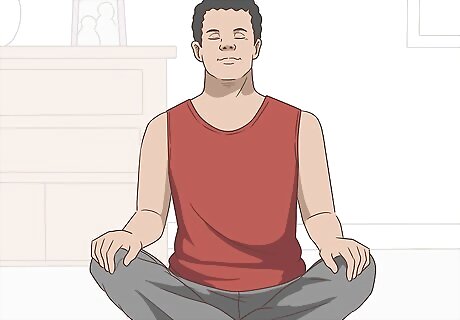
Practice relaxation techniques. Though it may seem a bit silly, but so much of the body works in tandem with the brain, that if you change one, you can change the other. Yoga, meditation, and deep breathing all tell the body to be relaxed. Once you make it a habit, you'll feel the reduction in stress levels. And when stress does come, you'll be able to handle it more calmly and effectively.
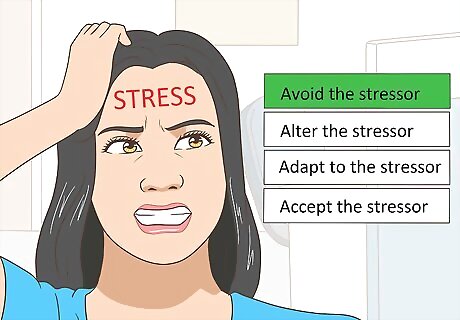
Deal with it. When it comes to stress, it probably won't just go away. You'll need to come up with a way to handle it. In general, there are four ways to think about this: Avoid the stressor. Alter the stressor. Adapt to the stressor. Accept the stressor. Thinking of it this way may help you sort your thoughts. Which one is most doable for you? How can you accomplish one of these domains? EXPERT TIP Chloe Carmichael, PhD Chloe Carmichael, PhD Licensed Clinical Psychologist Chloe Carmichael, PhD is a Licensed Clinical Psychologist who runs a private practice in New York City. With over a decade of psychological consulting experience, Dr. Chloe specializes in relationship issues, stress management, self esteem, and career coaching. She has also instructed undergraduate courses at Long Island University and has served as adjunct faculty at the City University of New York. Dr. Chloe completed her PhD in Clinical Psychology at Long Island University in Brooklyn, New York and her clinical training at Lenox Hill Hospital and Kings County Hospital. She is accredited by the American Psychological Association and is the author of “Nervous Energy: Harness the Power of Your Anxiety” and “Dr. Chloe's 10 Commandments of Dating.” Chloe Carmichael, PhD Chloe Carmichael, PhD Licensed Clinical Psychologist Examine the situation to decide if you need to accept it or change it. According to licensed clinical psychologist Dr. Chloe Carmichael: "If you're feeling stressed, it's either a sign that you need to improve your coping skills, or it's a sign that you need to take action to change your situation. For example, no amount of coping is going to help you deal with an abusive boss, so the healthiest response would be to focus on finding a new job. On the other hand, if you just have a boss who doesn't give you much positive feedback, you might try asking them to clarify their expectations of you."

Get support. Family, friends, and your social network all have a big impact on how you handle stress. Having a group of people you can lean on can help keep you mentally healthy. However, support can also be something more concrete, like time or money. Even though it's hard to ask for help, it by no means makes you weak. If you're feeling stressed, you can look for support from: Family and friends. Coworkers or people you know through hobbies or other interests. A professional counselor. People you know from church or a member of the clergy. Employee assistance programs at work, or stress management classes. Support groups.
The Outlook
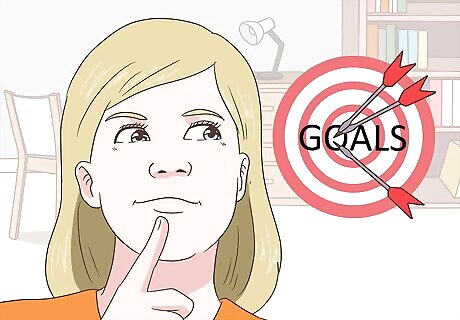
Find a purpose and balance. Many people find that having meaning to their work (whatever it is) centers them. Being aimless is not comfortable for most people. Find something that drives you and concentrate on it. Once you find what this is, you can change your habits. Anything or anyone that draws you away from what gives you meaning or balance should be limited or cut out entirely.

Practice positive thinking. It's not a black and white world of thought preceding behavior or vice versa. However, regardless of your school of thought, you have some say in how you feel and interpret things. If positive thinking is hard for you, try to manipulate your behavior. You don't necessarily have to think something genuinely, but act like you do. You may find that your mind follows suit. Try this -- start walking with your head down. How do you feel? Now throw it up. How about now? If positive behaviors are hard for you, drill in on your thoughts. Stop the negative ones. And you can! You are the only person who can stop your negative thoughts. Use that power and replace them with positive (or at least neutral!) ones.
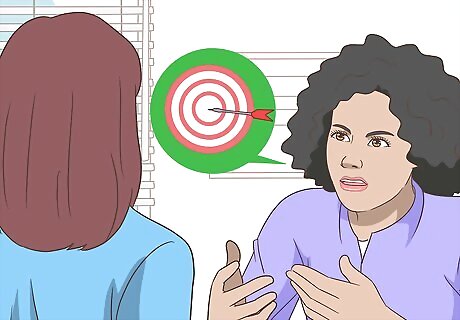
Be direct. A lot of people have undue amounts of stress in their lives from situations that would resolve themselves if they were just direct about it. Other people (sources of stress) for you may not realize that they are making you pull your hair out. Talk to them. Your happiness is at stake here. Whatever problem it is, if it's stressing you out, it's worth talking about. Your emotions are valid, whatever they are.
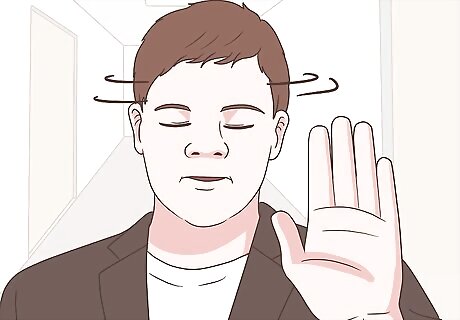
Be willing to say no. It's easy for people-pleasers to get stressed out; obviously, because pleasing everyone is impossible to do. So start saying no to avoid over-committing. You'll have more free time and more time to concentrate on you. If this is an issue for you, practice saying no at least once a week. Don't miss out on the things you enjoy! Just cut down on the activities that make you sacrifice part of your already hectic schedule.

Stop striving for perfection. We should always push ourselves to do our best, but we also need to realize when the job we've done is good enough. Everyone else judges, so you don't have to be another source of criticism when it comes to you. Set time limits on yourself if you find yourself being a perfectionist. This is where striking a balance comes into play. If you manage your time wisely, you'll have more time to relax.




















Comments
0 comment